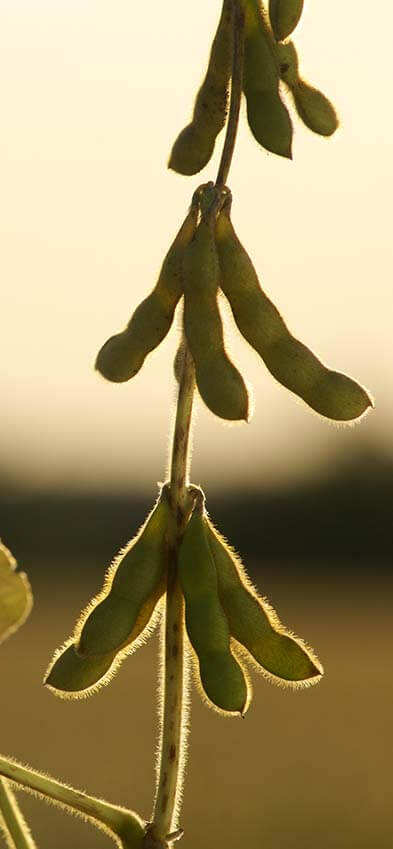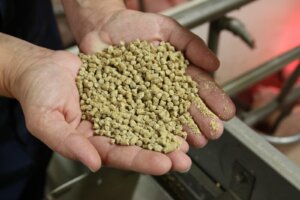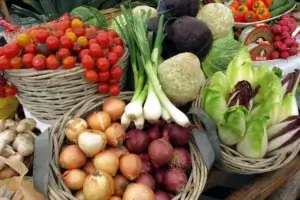Challenges
There are several barriers to soybeans powering faster food sustainability progress:
- Seed companies and most of the soybean industry do not focus on improved soybean protein with few exceptions, including Benson Hill, AgReliant, and Syngenta. Others have disregarded decades of nutritionists’ warnings that soybean protein is declining, because they don’t get paid directly for nutrition quality.
- Farmers naturally select soybean varieties for yields. Most are unaware that their soybean protein levels have been sliding for decades, or that fixing that decline will improve soybean value and corn demand.
- Ethanol producers sell DDGS, a highly nutritious co-product that competes with natural feed. They price this to out-compete soybean meal and corn. That has cost family farmers billions in lost sales. The DDGS have double the emissions intensity of natural feed.
- Most livestock nutritionists are unaware of the connection between maximum soybean meal quality and achieving revenue and sustainability targets.
- The agriculture system is organized by crops, instead of the interconnected ecosystem it actually is. This means everyone working together is necessary to solve the problem and capture that lost revenue while improving sustainability at the same time.
ProActivism Solutions
Here’s how supporting ProActivism helps improve family farm revenue and advance sustainability:
- INDEPENDENT SCIENCE — We have eight years of peer-reviewed, USDA-reviewed, field-level variety data on soybeans, but each year there are new varieties.
- Ongoing data collection and analysis are needed to determine which new soybean varieties deliver the best feed value in livestock feed.
- Annual harvest data analysis is needed to know which soybeans deliver the most value for each species and growth stage.
- We have a network of livestock specific websites under development building on our work with soyvalue.com. Additional reporting is needed on soybean value for each livestock site.
- Farmer and customer teamwork with food producers is essential.
- In 2022, Proactivism is inviting every farmer and consumer who cares about food security to join thousands of farmers who have already taken a confidential personal sustainability survey.
- Participants will get a free report on their sustainable practices compared to their peers, and coupons for dollars off “sustainability gear” or food products.
- New farmer and consumer education programs with independent funding are needed. Farmers cannot get paid for value they don’t know about. This means funding is needed for:
- Advertising campaigns in farm and consumer magazines
- Consumer-facing programs that bring a disconnected farm sector back together to help farmers and families advance sustainability together.
- Value-sharing negotiations are needed to ensure family farmers who deliver better nutrition get paid their fair share of the sale.
- We need your support to hire legal and political experts to get financial support for farmers who are helping achieve the administration’s sustainability goals.
- The more farmers who sign up and agree to plant the best soybeans, the more data power they have to get paid more through negotiations with soybean buyers

Science Support
The article Characterizing Soybean Meal Value Variation across the United States: A Swine Case Study, describes the original research by the independent FieldRise and university science team that found the feed value variations hiding in soybean varieties.
Its even easier to measure oil value at the variety level and an independent science team has requested the necessary data from the soybean checkoff.
Educational Flyer
How you can help
Support Proactivism Financially – We’re seeking nonprofit status to help insure farmers and the public benefit from the discovers that were made.
Sign up to join the movement – We will send updates for you to post on social media or share in your corporate communications, to help support farmers and the families they feed.









